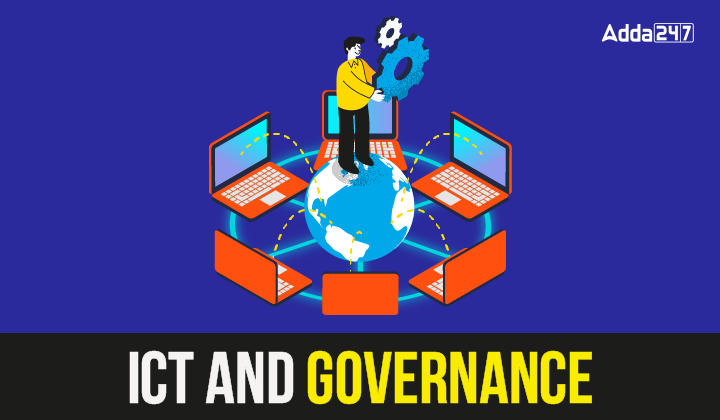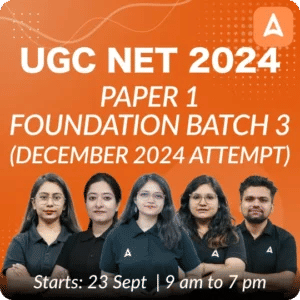Table of Contents
ICT – Information and Communication Technology refers to the use of technology, including computers, software, and telecommunications, for the storage, retrieval, transmission, and manipulation of information. It encompasses a wide range of technologies and applications that facilitate communication, data management, and decision-making processes.
In the context of governance, ICT plays a crucial role in enhancing transparency, efficiency, and accountability in the functioning of government institutions and public administration. It enables the digitalization of government services, automation of administrative processes, and the implementation of e-governance initiatives. ICT tools and applications are utilized to improve service delivery, citizen engagement, and overall governance effectiveness.
ICT Objective
In today’s interconnected world, Information and Communication Technology (ICT) plays a vital role in transforming governance systems. In the digital age, Information and Communication Technology (ICT) has emerged as a catalyst for transforming governance systems worldwide. E-governance, the utilization of ICT in governance processes, holds the promise to achieve the following objectives:
- Enhancing efficiency and reducing bureaucracy.
- Promoting transparency and access to information.
- Empowering citizens and promoting their active participation.
- Increasing accessibility to government services and information.
- Improving service delivery and responsiveness.
- Ensuring data security and privacy.
Scope of ICT and Governance
Governance revolves around the exchange of information between various entities, including Government-to-Citizen, Citizen-to-Government, Citizen-to-Citizen, and Citizen-to-Business. E-governance encompasses and facilitates these relationships in the following manner:
G2C (Government-to-Citizen):
- E-health: E-health utilizes ICT to provide remote healthcare services, digital health records, and online consultations, improving access to healthcare, facilitating efficient data management, and enabling remote medical care.
- E-citizenship: It refers to the digitization and utilization of electronic platforms for citizen identification and authentication. It involves the use of ICT to provide secure digital identity systems, online application processes, and digital issuance of documents.
- E-registration: E-registration digitizes registration processes, such as births, marriages, and property, streamlining procedures, reducing paperwork, and enhancing accuracy and efficiency in the registration of vital events and assets.
- E-education: E-education leverages ICT to provide online learning platforms, digital content, and virtual classrooms, offering flexible learning opportunities, personalized education experiences, and efficient administration of educational institutions.
- E-transportation: E-transportation integrates ICT into transportation systems, enabling services like ride-sharing platforms, real-time transportation information, and electronic ticketing, improving mobility, efficiency, and convenience for commuters.
C2G (Citizen-to-Government):
- E-feedback and complaint mechanisms: ICT allows citizens to provide feedback, report issues, and lodge complaints to government authorities through digital channels. This can include dedicated helplines, online complaint portals, or mobile applications, enabling direct communication between citizens and government entities.
- E- democracy: ICT plays a pivotal role in e-democracy by facilitating citizen engagement and participation in decision-making processes through online platforms, enhancing transparency and inclusivity in democratic governance.
G2G (Government-to-Government):
- E-administration: It uses ICT to digitize and automate government administrative processes, improving efficiency and service delivery. It promotes transparency, citizen engagement, and coordination among government entities for more effective governance.
- E-police: It uses ICT for efficient law enforcement, including crime prevention, investigation, and administration. It enables real-time information sharing, digital evidence collection, and online reporting, improving police effectiveness.
- E-courts: These refer to the digitization and use of technology in legal proceedings. It involves online case management, electronic filing of documents, virtual hearings, and other digital tools to streamline court processes and enhance access to justice.
G2B (Government-to-Business):
- E-taxation: E-taxation refers to the use of electronic systems and technology in tax administration and filing processes. It enables taxpayers to submit returns, make payments, and access tax-related services online, streamlining the tax collection process and enhancing compliance.
- E-licensing: E-licensing involves the digitalization of licensing procedures, allowing individuals and businesses to apply for and obtain licenses electronically. It simplifies the application process, reduces administrative burdens, and enables quicker issuance of licenses, fostering business growth and efficiency.
- E-tendering: E-tendering, also known as electronic tendering or e-procurement, involves conducting procurement processes online. It allows for the electronic publication of tender documents, online submission of bids, and digital evaluation of proposals.
ICT Challenges and Considerations
Implementing ICT in governance also presents various challenges that must be addressed to maximize its benefits:
- Privacy and Data Protection: Governments need robust frameworks to protect citizens’ privacy and personal data in the digital realm.
- Cybersecurity: The increased reliance on ICT exposes governance systems to cyber threats, emphasizing the need for robust cybersecurity measures and awareness.
- Digital Divide: Bridging the digital divide requires significant investment in infrastructure, digital literacy programs, and efforts to address socioeconomic disparities.
- Capacity Building: Governments need to invest in training programs to enhance the digital skills of public officials and ensure effective utilization of ICT tools.
ICT Future Prospects
As technology continues to advance, the future of ICT in governance holds great promise:
- Blockchain Technology: Blockchain can enhance transparency, security, and efficiency in various governance processes such as voting, land registry, and supply chain management.
- Artificial Intelligence: AI can be leveraged for data analysis, decision support, and automation, improving governance effectiveness and efficiency.
- Internet of Things: IoT can enable smart governance by connecting devices and systems, leading to improved service delivery and resource management.
- Big Data Analytics: Analyzing large volumes of data can generate valuable insights for evidence-based policymaking, resource allocation, and monitoring of public services.
Conclusion
ICT has revolutionized governance by offering transformative tools for efficiency, transparency, accountability, and citizen engagement. While challenges exist, embracing ICT can empower governments to drive positive change and deliver more effective, inclusive, and responsive governance.
Download ICT and Governance Study Notes PDF
Below is the direct download link for ICT and Governance Study Notes PDF for UGC NET Exams. Candidates can access and download the ICT and Governance Study Notes PDF for UGC NET Exams from the provided link.
Download ICT and Governance Study Notes PDF
| Read more UGC NET Notes | |
| UGC NET Study Notes for Paper 1 | UGC NET Commerce Notes PDF |
| UGC NET 2024 | UGC NET English Literature Notes |




 UGC NET Study Notes for Paper 1, Downloa...
UGC NET Study Notes for Paper 1, Downloa...
 समुद्र का पर्य�...
समुद्र का पर्य�...
 उपमा अलंकार: पर�...
उपमा अलंकार: पर�...














